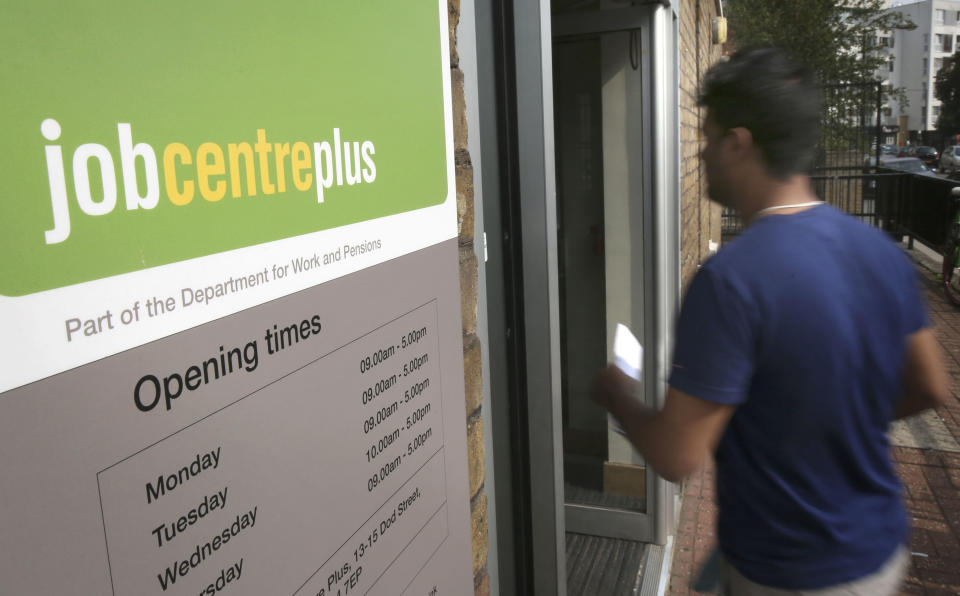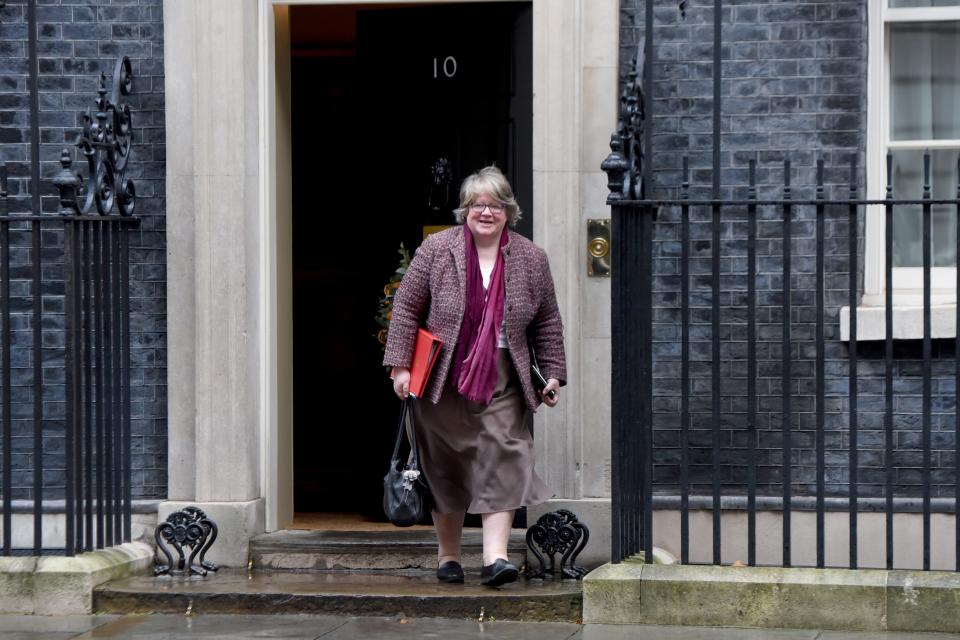UK employment hits record high despite alarm bells over UK economy

Employment unexpectedly increased and hit a new record high in the three months to October, despite Brexit uncertainty and a string of new warning signs over Britain’s economic health.
The latest official jobs figures from the Office for National Statistics (ONS) published on Tuesday show unemployment still near record lows at 3.8%, unchanged on the previous quarter. Some economists had expected it to tick up 0.1 percentage points.
The official employment rate rose to a record high of 76.2% between August and October 2019. Employers kept on hiring even in a period of heightened political uncertainty in the lead-up to Britain’s previous October Brexit deadline.
The number of people in work rose by 24,000 over the quarter. Some economists believe uncertainty and Britain’s flexible labour market has encouraged hiring to meet short-term needs at the expense of long-term investments, with workers easier to lay off than bigger projects are to reverse if conditions decline.
READ MORE: Pound falls as Boris Johnson moves to stop MPs extending the Brexit transition
Such trends could help explain Britain’s struggle to improve productivity since the financial crisis, which is widely seen to have held back economic growth and, until recently, held down pay levels.
Both male and full-time employment rose, but the female and part-time workforces fell.

The figures are likely to be welcomed by prime minister Boris Johnson after his return to power following a comprehensive election victory last week.
Johnson’s decisive win also sparked a stock market surge and was welcomed by many business leaders, after fears eased of more Brexit deadlock and a radical Labour government.
Work and pensions minister Thérèse Coffey highlighted rising employment in six of nine UK regions, perhaps reflecting increased focus on the north and the Midlands after the Conservatives’ election gains.
“As we head into 2020 I’m clear that the focus of this government is on levelling up opportunities and aspiration across the entire United Kingdom,” she said.
But the data comes hot on the heels of a string of recent bleak updates on the health of the UK economy, amid a global economic slowdown and heightened uncertainty over Brexit.
New statistics released by @ONS show that the employment rate is at a new record high of 76.2% pic.twitter.com/j5L36BX47F
— DWP Press Office (@dwppressoffice) December 17, 2019
Michael Hewson, chief market analyst at CMC Markets UK, said before the release recent data showed the economy had “stalled.”
He said any rise in unemployment beyond the 4% mark in the near-future could become a “big worry,” adding: “This will be something that the new UK government will want to avoid having seen such a solid swing towards them in the latest election from some key traditionally working class seats.”
READ MORE: UK economy flatlining as Britain goes to the polls
The latest numbers come after:
A closely watched survey of private sector activity on Monday showed it sliding to a 41-month low in December, with the fastest downturn in manufacturing output since 2020.
Britain’s budget watchdog also warned on Monday UK government borrowing would be £18.3bn higher than previously thought this year, after figures were updated for accounting changes and lower corporation tax receipts.
Official GDP figures last week showed Britain’s economy growing at its slowest annual rate in seven years, with national output unchanged in October when analysts had expected a slight recovery.
The pound, which surged after Johnson’s victory, dipped on Tuesday on reports the government could legislate to prevent parliament extending the one-year Brexit transition under EU rules. An extension is widely thought necessary to negotiate a complex trade deal, with fears of a new damaging Brexit cliff-edge and damaging trade barriers if a deal is not reached in time.

Tej Parikh, cheif economist at the Institute of Directors, said employment levels were a “big plus point” for the economy but noted falling vacancies in official figures in recent months.
“Firms are now cutting back on new hires as it becomes harder to find the skills they need. Uncertainty and slowing global growth have also made businesses a bit more cautious in their recruitment plans, and vacancies are expected to continue falling into 2020,” he said.
Parikh said the slowing demand for workers had also contributed to deteriorating wage growth, with annual growth in average weekly earnings in Britain slowing to 3.5%, excluding bonuses.
Pawel Adrjan, UK economist at jobs site Indeed, said it was an “unsolved puzzle” why high employment was not accelerating pay growth.
“While average pay packets are still growing faster than the cost of living - boosting people’s spending power in real terms - such a tight labour market would ordinarily force employers to ramp up wages in order to lure recruits.
“But behind the apparently robust headline numbers, warning lights are beginning to glow. The UK narrowly escaped a recession in 2019, and business confidence remains fragile, meaning many employers have put off hiring decisions.”

 Yahoo Finance
Yahoo Finance 